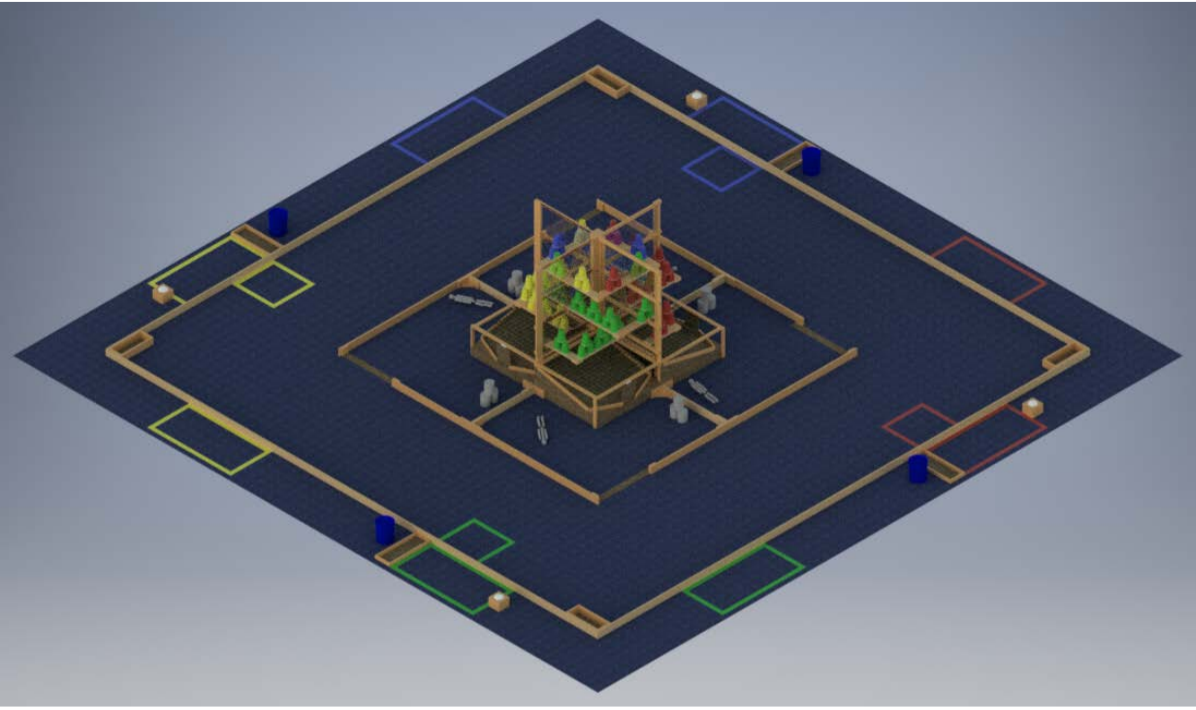Refereeing at OKBEST Robotics

I had the pleasure and privilege of volunteering as a referee at the Oklahoma Boosting Engineering Science and Technology (OKBEST) robotics competition this past weekend. OKBEST is an annual competition for middle school and high school students for which they are given a scenario, typically some real-life problem condensed into a simplified set of tasks and made competitive, and six weeks to construct a robot to handle it. Check out some of the past competitions (there are some really cool ones in there). This year’s was based on firefighting, search, and rescue and was called “Crossfire”:

Teams were tasked with rescuing a dummy, securing drums of hazardous material, and extinguishing flames with water (aka, knocking over plastic cups with lightweight plastic practice golf balls). The rounds had four teams competing at once, each focusing on their own section of the field to complete whatever they could within three minutes and rarely interacting with each other. Here’s a look at the setup:

The big points were awarded for rescuing the dummy (including a speed bonus) so all seven of the teams competing had some mechanism for that task, but many eschewed one or both of the other tasks. The rescue designs included scoops and claws to gently pick up the dummy and deliver it to safety, as well as designs that resembled plows for dragging the dummy from danger (though, I chuckle to imagine a real-life robot “rescuing” someone that way). The hardest part for me was occasionally standing idly by and offering condolences and encouragement while my assigned team had a wheel fall off or some other catastrophe forcing them to wait out the remainder of the round.
Here’s a video I shot of one of those middle school teams during their practice round:
I admit, I was disappointed to find that there is no autonomy involved - even though there is software installed to respond to commands and actuate motors, all of the robots were controlled remotely by a team member. Yes, I know that that would be far too much to expect of high school and middle school students in just six weeks, and considering they also had to put together presentations. I suppose I’ve rekindled an appreciation for the challenge of constructing, in a purely mechanical sense, a system that can accomplish a task.
Overall, I was really impressed with what these kids were able to accomplish, and I can’t help but feel really optimistic about their futures.
